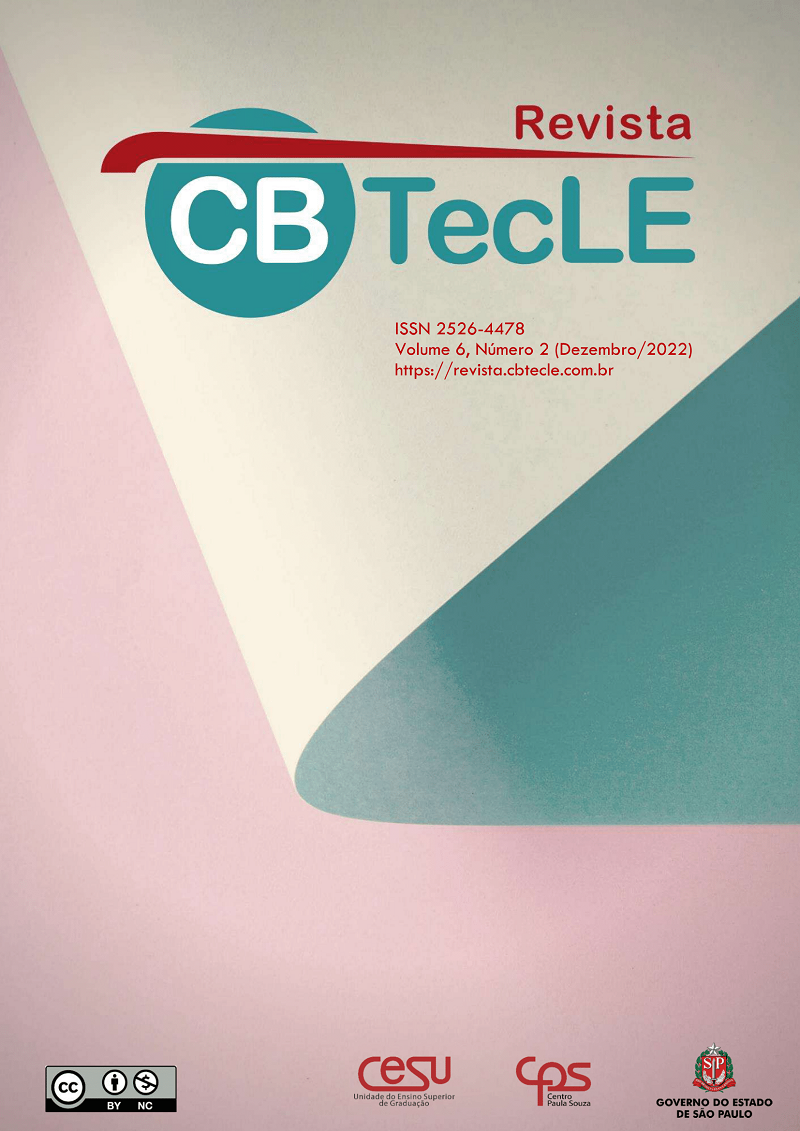THREE POLICIES, THREE LANGUAGES: TRIANGULATIONS OF THE TEACHING OF KOREAN, RUSSIAN AND CHINESE LANGUAGES
THREE POLICIES, THREE LANGUAGES: TRIANGULATIONS OF THE TEACHING OF KOREAN, RUSSIAN AND CHINESE LANGUAGES
Keywords:
Language policy, Teaching, Chinese language, Korean language, Russian languageAbstract
This article aims to analyze the language policies on language teaching abroad and its consequences in the Brazilian context of three countries that suffer from the process of orientalism (SAID, 2007; PUH, 2020a; PUH, 2020b): Republic of Korea, Russian Federation and People's Republic of China. This deepening will be done in a comparative process based on the methodology of unwriting (dezescrita) (BARZOTTO e RIOLFI, 2014) seeking to contemplate the different perspectives existing in the face of the creation of legislation, programs and projects for linguistic planning and management abroad.
References
BARZOTTO, Valdir; RIOLFI, Claudia R. Dezescrita. São Paulo: Paulistana, 2014.
DEPARTAMENTO DE LÍNGUA COREANA . Ministério da Cultura, Esportes e Turismo da República da Coreia . Ato nº 10584, 14 abr. 2011. Coreia do Sul, 14 abr. 2011. Disponível em: https://law.go.kr/LSW/lsInfoP.do?viewCls=engLsInfoR&urlMode=engLsInfoR&chrClsCd=010203&lsiSeq=136820#0000. Acesso em: 15 set. 2022.
DOLINSKY, Alexei Dolinsky . How to Strengthen Soft Power?. Russkiy Mir Foundation, 2 mar. 2011. Disponível em: https://web.archive.org/web/20120602131114/http://www.russkiymir.ru/russkiymir/en/magazines/archive/2011/03/article0002.html Acesso em: 20 mar. 2021
Confucius Institute Headquarters (Hanban). Constitution and By-Laws of the Confucius Institutes. Pequim: Development Center for Teaching Chinese as a Foreign Language, 2006.
FEDERAÇÃO RUSSA. Концепция государственной поддержки и продвижения русского языка за рубежом (утв. Президентом РФ 03.11.2015 N Пр-2283). Presidente da Federação Russa, Moscou, 03 nov. 2015. Disponível em: https://legalacts.ru/doc/kontseptsija-gosudarstvennoi-podderzhki-i-prodvizhenija-russkogo-jazyka/ Acesso em: 30 nov. 2021
FEDERAÇÃO RUSSA. Указ Президента Российской Федерации от 21.06.2007 г. № 796. Presidente da Federação Russa, Moscou, 21 jun. 2007. Disponível em: http://www.kremlin.ru/acts/bank/25689 Acesso em: 30 nov. 2021
FUNDAÇÃO RUSSKIY MIR. About Russkiy Mir Foundation. 2013. Disponível em: https://web.archive.org/web/20130921054100/http://www.russkiymir.ru/russkiymir/en/fund/about Acesso em: 20 mar. 2021
KRAUSE-LEMKE, CIBELE; PUH, MILAN. Produção acadêmica em estudos eslavos no Brasil: balanços e perspectivas para o fomento de novas propostas de cooperação internacional. Fórum Linguístico, v. 18, p. 5675-5688, 2021.
KUDORS, Andis. "Russian World”: Russia's Soft Power Approach to Compatriots Policy". Russian Analytical Digest, v. 81. Research Centre for East European Studies, 2010.
MINISTÉRIO DE RELAÇÕES EXTERIORES DA REPÚBLICA DA COREIA. Ato no 17308, de 26 mai. 2020. Seul, 26 mai. 2020. Disponível em: https://elaw.klri.re.kr/eng_service/lawView.do?hseq=55540&lang=ENG. Acesso em: 15 set. 2022.
MINISTÉRIO DE RELAÇÕES EXTERIORES DA REPÚBLICA DA COREIA. Emenda-Parcial no Ato no 9878, de 30 de dezembro de 2009. Seul, 30 dez. 2009. Disponível em:https://www.law.go.kr/eng/engLsSc.do?menuId=2&query=KOREA%20FOUNDATION%20ACT#liBgcolor9. Acesso em: 27 set. 2021.
MOSER, David. A Billion Voices: China's Search for a Common Language: Penguin Specials: China's Search for a Common Language. Penguin Group Australia, 2016.
PILZ, Vanessa. Fundação Russkiy Mir completa um ano de atividades no Brasil. Gazeta Russa, Moscou, 17 nov. 2012. Disponível em: <https://br.rbth.com/articles/2012/11/17/fundacao_russkiy_mir_completa_um_ano_de_atividades_no_brasil_16483>. Acesso em: 13 set. 2022
PUH, MILAN. ESTUDOS ESLAVOS NO BRASIL: CONSTITUIÇÃO DE UMA ÁREA. Revista X, v. 15, p. 674-697, 2020b.
PUH, MILAN. ?Tudo junto e misturado??: as contribuições e os limites do multiculturalismo no ensino de línguas. El toldo de Astier, v. 20-21, p. 415-432, 2020a.
QIAO, Jianzhen. INSTITUTOS CONFÚCIO NOS PAÍSES DE LÍNGUA PORTUGUESA E SEU PAPEL NOS INTERC MBIOS POVO A POVO. Pontos de Interrogação, [s. l.], v. 10, n. 2, ed. Especial, p. 237-251, Jul./Dez. 2020.
RYAZANOVA-CLARK, Lara. “The State Turning to Language”: Power and Identity in Russian Language Policy Today. Russian Language Journal. Vol. 56. 2006.
SAID, Edward W. Orientalismo: o Oriente como invenção do Ocidente. 1ª edição. São Paulo: Companhia das Letras, 2007.
SANTOS, Boaventura de Sousa. A construção multicultural da igualdade e da diferença. Oficina do CES, n. 135, Centro de Estudos Sociais, Coimbra, Janeiro de 1999.
SCHIFFMAN, Harold. Linguistic Culture and Language Policy. The Politics of Language Series, Routledge, Londres, 1996.
VIEIRA, Pedro Antonio. O nacionalismo metodológico na economia e a Economia Política dos Sistemas-Mundo como possibilidade de sua superação. Estudos do CEPE, p. 78-94, 2015.



